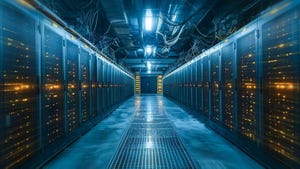Northlake Buys Extra Water for Microsoft Site
The city of Northlake, Ill. will expand its water capacity to support Microsoft's massive new data center in town.
August 20, 2008
The city of Northlake, Ill. will expand its water capacity to support Microsoft's massive new data center in town. The neighboring city of Franklin Park agreed last week to sell up to 2 million gallons of water to Northlake in an intergovernmental agreement. The cost of the deal, as well as Northlake's $8 million investment in pumps and a generator, will be paid for by water sales to Microsoft, according to local media.
The water agreement between the towns highlights the enormous volume of water used to cool modern data centers. Google is known to seek sites near lakes or rivers for its data centers to support its cooling needs.
Microsoft is building a $500 million, 500,000 square foot data center in Northlake to support its Live family of online services. Microsoft will fill one floor of the huge facility with up to 220 shipping containers packed with up to 300,000 servers.
The scope of the Microsoft project has exceeded Northlake's in-house water capacity. Intergovernmental water agreements are not unusual, and Franklin Park had spare capacity it could sell to Northlake. Franklin Park's towers, tanks and underground reservoirs can store 15.75 million gallons of water, and the village uses only about a third of that amount at any given time.
Microsoft is mindful of the impact of the water needs of its data centers and how it may affect local infrastructure. The company says the availability of recycled water - also known as grey water - swayed the company's choice of San Antonio for a $550 million data center complex.
Grey water comprises 50 to 80 percent of residential wastewater, and includes all wastewater except toilet wastes and food wastes (which are classified as "black water" waste). Grey water is usually treated before being reused in industrial processes, which can affect the economics of using recycled water instead of municipal water.
About the Author
You May Also Like







